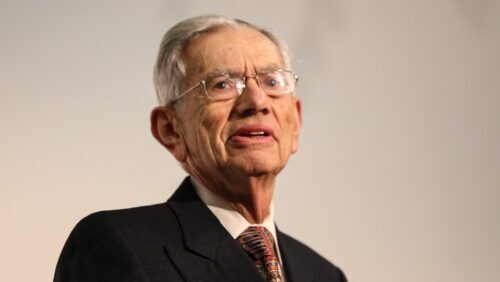Rosh Hashanah 5781
Adapting
Living with the pandemic is an ongoing challenge. Changes in our lives have affected relationships and altered how and where we do our work, study and pray. It has not been easy. The story of Abraham's concubine, Hagar, provides a perspective during these days of trial and challenge.
The first day of Rosh Hashanah, the Torah selection includes the story of Abraham's banishment of Hagar together with their son, Ishmael. They are dispatched to the desert with only bread and water.
Wandering in the vast wasteland, their water soon gives out. Overcome by thirst and dehydration, a weeping Hagar, awash in self-pity, collapses opposite an immobilized Ishmael. It is then that an angel of God calls her to open her eyes to behold the well of water within her sight. She and Ishmael drink, fill the bottle of water and continue on their journey. They successfully exit from the desert to build new lives.
Hagar survived by transcending her self-pity. Surviving the pandemic likewise requires overcoming the tendency to be immobilized by the challenges of the moment. The human capacity to adapt to trying circumstances and difficult situations is an amazing blessing, that can be neutralized, however, by self-pity.
Face masks are uncomfortable and social distancing seriously compromises the experience of intimacy. We have, however, discovered the power of Zoom and other technologies to enable us to convert our homes to office workspace, classrooms, prayer sites and most significantly, into virtual venues for family gatherings, for both simcha and sadness. By successfully overcoming the Hagar response we have transcended much of the pain, frustration and isolation caused by the pandemic.
Our Synagogues and Temples have proven to be innovative in adapting to the many limitations that are a consequence of the pandemic. High Holiday services will be different this year, but they will nonetheless be inspiring and meaningful. May the prayers that our lives speedily return to normal be fulfilled, and may the strength and resolve demonstrated during this crisis be an ongoing source of inspiration for us all.
From the holy city of Jerusalem, my best wishes for a Shanah Tovah U'Metukah, a year of blessings, good tidings and of health.
Rabbi Arnold M Goodman
Senior Rabbinic Scholar



 The Israelite rebellion in response to the Spies' report regarding the Land of Israel, found in the Book of Numbers, sealed the fate of the generation of the Exodus. Other than Caleb and Joshua, all over twenty years of age would perish during a forty-year trek in the desert; the children and grandchildren would cross the Jordan into Canaan. Forty years later, Moses, prior to his own departure from the scene, recounts, with admiration, Caleb's bravery in confronting the mob and assuring them that, with God's help, they would prevail.
The Israelite rebellion in response to the Spies' report regarding the Land of Israel, found in the Book of Numbers, sealed the fate of the generation of the Exodus. Other than Caleb and Joshua, all over twenty years of age would perish during a forty-year trek in the desert; the children and grandchildren would cross the Jordan into Canaan. Forty years later, Moses, prior to his own departure from the scene, recounts, with admiration, Caleb's bravery in confronting the mob and assuring them that, with God's help, they would prevail. Now the man Moses was very humble, more than all the men that were upon the face of the earth (Num. 12:3).
Now the man Moses was very humble, more than all the men that were upon the face of the earth (Num. 12:3).






























